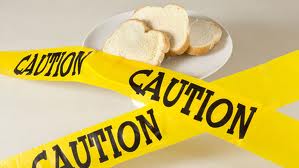
Stop These Top Food Sensitivities to Feel Healthier
As the age old adage goes, you are what you eat. Many individuals simply do not realize, however, how true this saying really is.
Stop These Top Food Sensitivities to Feel Healthier now!
Each of us has unique body characteristics. We each use our bodies in different ways. Some of us exercise regularly; some of us never do. Genetics and age also plays a part in overall health. Therefore, a food that might cause side effects in your neighbor may not affect you at all. On the other hand, ‘something you ate’ may be the cause of that nagging problem that has been hindering your workout or your overall well-being.
So, Stop These Top Food Sensitivities for Beginners and let’s discuss 10 food side effects that may surprise you
- Stress
Many of us turn to so-called comfort foods during times of stress. However, the experts suggest doing otherwise, and for reasons more so than just maintaining a good figure. The majority of common comfort foods include caffeine, sugar, processed foods, saturated fats, refined sugars, salts, alcohol, and tobacco, all known to create further stress in the human body. These foods enact a stimulant-like effect in an already overloaded system, furthering the physical symptoms of stress. Known as sympathomimetics or pseudo stressors, these foods may bring psychological comfort momentarily, but in the long run, these foods stress the body’s processing abilities and cause the individual to consume more of these types of foods, creating a cycle of poor nutrition and a stressed system.
- Insomnia
The inability to sleep at night, while sometimes caused by external factors, may be intricately linked to your diet. Diet experts list certain food ingredients that often interfere with the ability to sleep, including:
- Chocolate
- Alcohol
- Coffee
- Tea
- Fatty foods
- Spicy foods
- Common food additives such as MSG and other artificial flavorings
By cutting down on these items, especially prior to sleep, individuals may find a full night’s rest much easier to come by in the future.
- Sleepiness
Other foods are known to induce sleepiness. For some individuals, eating these foods at work or the office can make the rest of the day a living nightmare of lethargy and nodding off at your desk. Many of us are familiar with the effects of Thanksgiving dinner. We stuff ourselves with turkey and all the trimmings, and then feel the urge to lay down for a quick nap. Aside from a full stomach creating a feeling of satiety, which can lead to the desire to sleep, turkey has high levels of tryptophan, an ingredient that causes sleepiness. Many other foods do as well, although not all foods that can induce sleepiness include tryptophan. Foods to watch out for include:
-
- Cheese
- Milk
- Yogurt
- Turkey/Poultry
- Tofu
- Honey
- Almonds
- Bananas
- Rice
- Beans
- Oatmeal
- Papaya
- Hummus
- High Blood Pressure
The dangers associated with high blood pressure are well known. Food and food ingredients known to contribute to high blood pressure include:
- Salts
- Red meats
- Foods high in fat
- Foods high in sugar
It is interesting to note, however, that dark chocolate, although high in sugar, potentially lowers blood pressure, as reported by researchers in the Aug. 27, 2003 issue of The Journal of the American Medical Association.
- Kidney Stones
Any individual that has experienced kidney stones can attest to the pain and discomfort this medical problem can cause. If kidney stones are common in your family, or you simply want to do what you can to avoid them, watch out for:
- Salt
- Rhubarb
- Fructose
- Apple juice
- Grapefruit juice
- Peanuts
- Soy foods
- Beets
- Spinach
- Memory Impairment
Over time, many individuals notice increasing memory difficulties. While much is yet to be learned about age-related memory loss, it has been reported that certain foods seem to exacerbate gradual memory loss and cognition impairment, including:
- Saturated fats
- Trans fats
- Shellfish
- High cholesterol food
- Organ meats (liver, kidneys, etc.)
- Tooth Staining
Believe it or not, very few people have truly white teeth. Genetics, aging, and certain medications can affect tooth color. Most of us have teeth in varying shades of yellow. However, a huge industry has grown up around teeth whitening, as many individuals desire what has come to be known as the ‘celebrity’ smile. Our teeth respond to excellent home oral care, but brushing and flossing alone may not be enough to achieve the pearly white appearance you desire. Certain foods have long lasting staining properties that brushing along may not be able to erase, so if you want whiter teeth without visiting the dentist, be sure to take good care of your teeth at home and avoid:
- Berries
- Curry
- Coffee
- Cola
- Teas
- Red wine
- Smoking or chewing tobacco
- Thirst
The truth is that few of us are adequately hydrated. Add the stress of our environment, pollution, poor nutrition, and poor lifestyle choices, and it’s easy to see how dehydration can occur. Certain foods as well are known to cause thirstiness, which can further dehydrate the body and cause headaches, low blood pressure and other much worse conditions. Foods contributing to thirst include salty, fatty, spicy and sugary foods and drinks. The best option for overcoming any form of thirst should always be water. Your internal organs, digestive system, skin and overall bodily functions will thank you.
- Nausea
Aside from alcohol, there are some relatively unknown foods that have the side effect of nausea in a large number of individuals. Foods containing yeast, gluten products, and lactose may contribute to nausea, and a simple avoidance of these products is the best way to solve the problem. Yummly has great recipes of yeast free, gluten free, lactose free containing foods, obviously these are all carbs, because meats don’t contain the above.
- Water Retention, Bloating, or Swelling
After a large meal, many individuals will experience some form of bloating or feeling excessively full; however, certain foods, even in moderate intake, are known to cause extreme water retention and bloating in people. These foods include:
- Caffeine
- Sugar
- Alcohol
- High sodium foods
- Chocolate
How can you know which foods may be triggering your unwanted symptoms? Trial and error. Simply remove the suspected food from your diet and see if your symptoms improve or go away completely. To save time, you can even skip the whole one food elimination process on your own, and go have food sensitivity testing performed. Contact me for more info.
